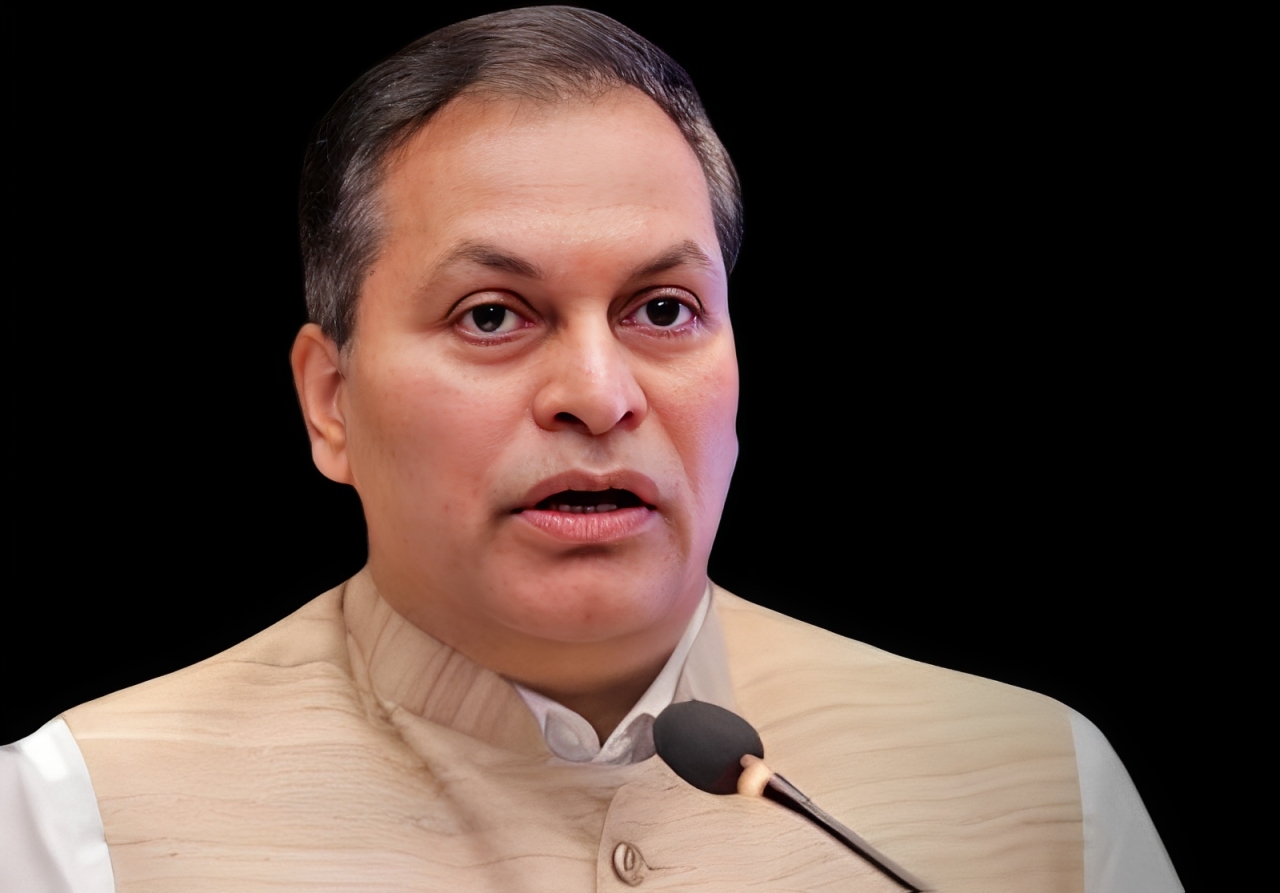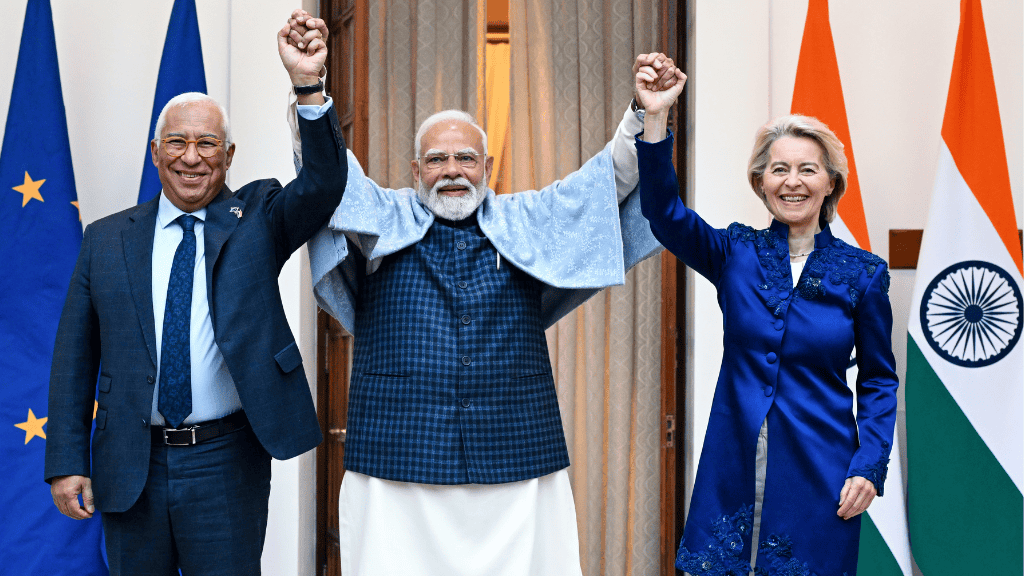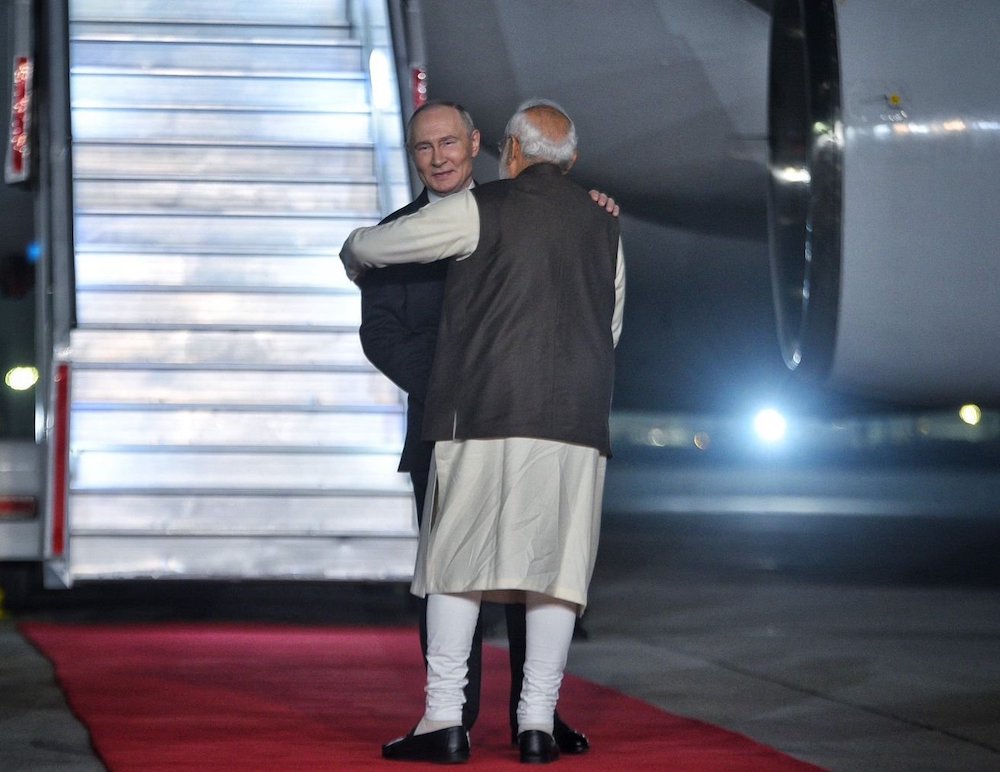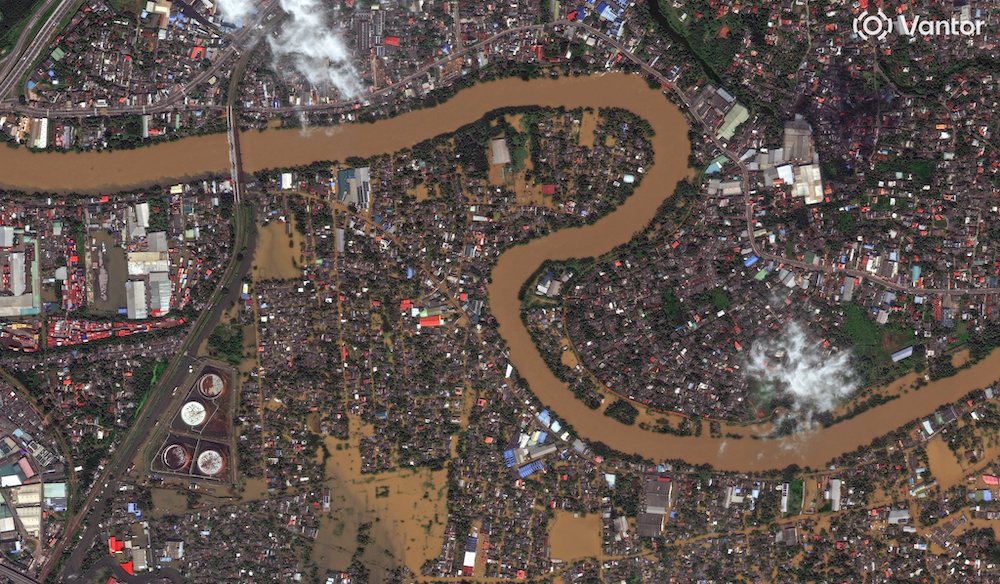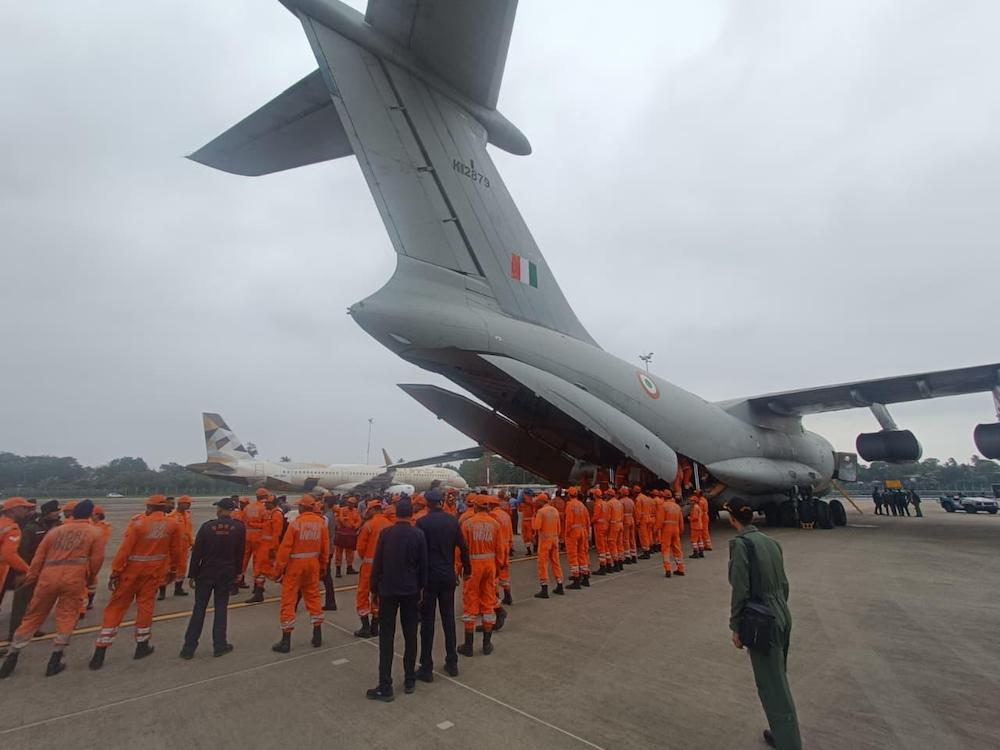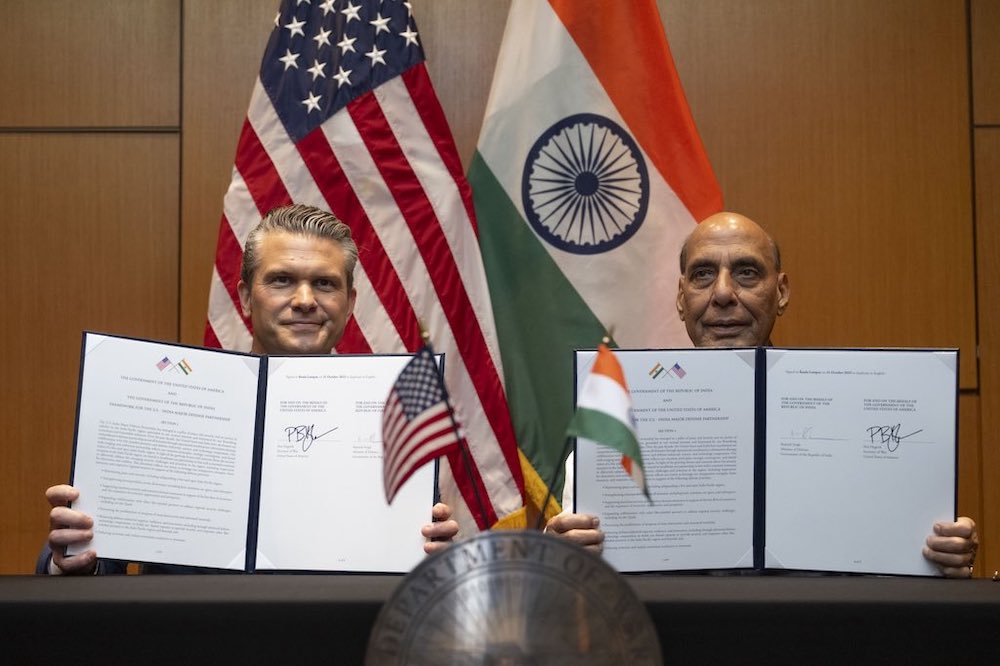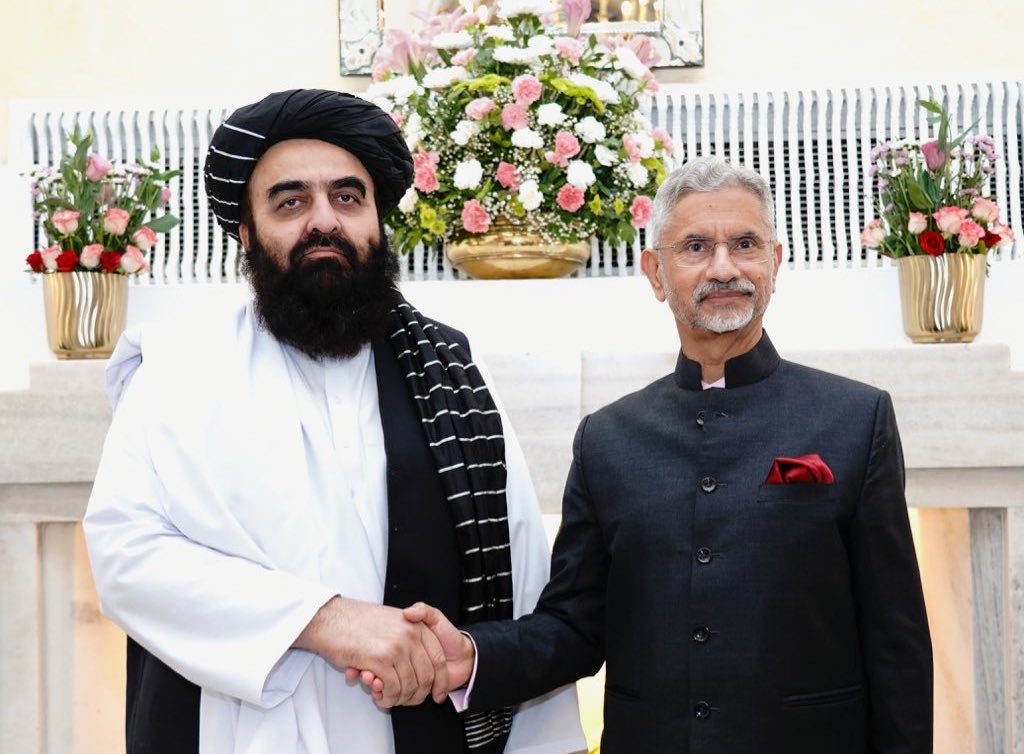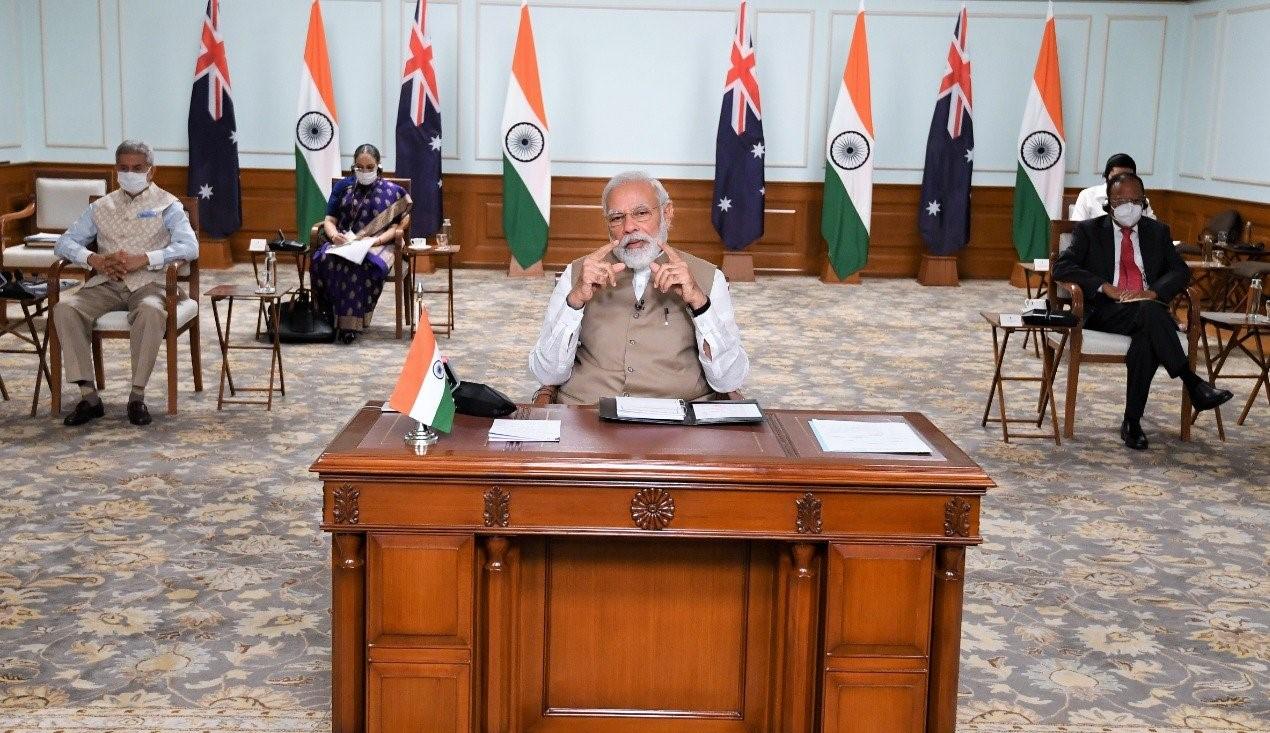
New Delhi: Recognizing the importance of global cooperation for saving lives and managing the economic impacts of COVID-19 and future global challenges, India and Australia on Thursday decided to share the benefits of scientific and medical research and development, strengthen healthcare systems to respond effectively in preventing the global pandemic.
The joint statement on Comprehensive Strategic Partnership between India and Australia was issued after the two Prime Ministers Narendra Modi and Scott Morrison, participated in an India-Australia Leaders’ Virtual Summit on Thursday. The 12-point joint statement dwells at length upon enhancing cooperation between the two countries in fighting terrorism, enhancing defence and maritime cooperation and strengthening people-to-people contact and boosting economic cooperation.
After the virtual summit, India and Australia also signed seven MoUs in the areas of cyber technology, science and technology, defence, mutual logistic support and water resource management, public administration and governance reforms.
As the world battles to contain the raging COVID-19 pandemic, the two sides also vowed to reflect on the recommendations of the independent and comprehensive evaluation of the international health response to COVID-19 to improve capacity for preparedness in tackling the pandemic.
India and Australia resolved to boost collaboration on science, technology and research to support their national COVID-19 responses. ``We have committed to a new phase of the Australia – India Strategic Research Fund to promote innovative solutions for responding to and treating COVID-19, as well as other jointly determined priorities, to be preceded by a one-off Special COVID-19 Collaboration Round in 2020,’’ the joint statement said.
The two countries also jointly decided to work cooperatively through multilateral, regional and plurilateral mechanisms to strengthen and diversify supply chains for critical health, technology and other goods and services. "We will work together to strengthen international institutions to ensure they are inclusive and rules-based,’’ it said.
Both countries jointly decided to work together in the areas of digital economy, cyber security and critical and emerging technologies as identified by the Framework Arrangement on Cyber and Cyber-Enabled Critical Technology Cooperation.
Australia conveyed that India could consider it as a stable, reliable and trusted supplier of high-quality mineral resources to India. Both sides jointly decided to diversify and expand the existing resources partnership. The MOU on cooperation in the field of mining and processing of Critical and Strategic minerals identifies specific areas where both sides will work together to meet the technological demands of the future economy. Both countries jointly decided to cooperate on new technologies for exploration and extraction of other minerals.
Describing the meeting between the two Prime Ministers as ``highly productive’’, the joint statement said that both premiers noted the progress in the relationship across many fields, as well as the importance of a globally coordinated response to COVID-19 and working to build a prosperous, open and stable post-COVID-19 world.
Affirming their commitment to strengthening India-Australia ties for the long term, the two leaders committed to elevate the bilateral Strategic Partnership concluded in 2009 to a Comprehensive Strategic Partnership (CSP).
The CSP is based on mutual understanding, trust, common interests and the shared values of democracy and rule of law. It reflects India and Australia’s strong commitment to practical global cooperation to address major challenges like COVID-19.
“It is in line with India's increasing engagement in the Indo-Pacific region through her Indo-Pacific vision and Australia's Indo-Pacific approach and its Pacific Step-Up for the South Pacific. Both countries share the vision of an open, free, rules-based Indo-Pacific region supported by inclusive global and regional institutions that promote prosperous, stable and sovereign states on the basis of shared interests,’’ the joint statement said.
To provide oversight of the CSP and to deepen economic and strategic cooperation into the future, India and Australia affirmed their desire to increase the frequency of Prime Ministerial contact through reciprocal bilateral visits and annual meetings in the margins of international events.
To pursue CSP, Foreign and Defence Ministers of the two countries will meet in a ‘2+2’ format to discuss strategic issues at least every two years.
Both countries also jointly decided to continue their regular interactions under the Foreign Ministers Framework Dialogue (FMFD).
Under the CSP, they decided to work together in the areas of mutual cooperation for enhancing science, technology and research collaboration, boosting cooperation in the maritime domain, defence cooperation, regional and multilateral cooperation and economic cooperation.
On maritime cooperation for an open and inclusive Indo-Pacific, both countries share a view that many of the future challenges are likely to occur in, and emanate from, the maritime domain. Both India and Australia committed to work together with partners and relevant regional organisations across the Indo-Pacific, including ASEAN, to enhance capacity for sustainable management of marine resources and challenge in maritime domains.
In this regard, Australia expressed support for India’s Indo-Pacific Oceans Initiative (IPOI) which will promote better coordination and cooperation among the countries in the region on maritime related issues.
On Defence Cooperation, the two sides agreed to continue to deepen and broaden defence cooperation by enhancing the scope and complexity of their military exercises and engagement activities to develop new ways to address shared security challenges.
Both India and Australia share a vision of a free, open, inclusive and rules-based Indo-Pacific region to support the freedom of navigation, over-flight and peaceful and cooperative use of the seas by adherence of all nations to international law including the United Nations Convention on the Law of the Sea (UNCLOS) and peaceful resolution of disputes rather than through unilateral or coercive actions.
The nations committed to continue to work together through various plurilateral mechanisms, including trilateral meetings with Japan, trilateral meetings with Indonesia and consultations on COVID-19 with Japan, New Zealand, the Republic of Korea, Vietnam, and the United States. They welcomed the inaugural Quad ministerial meeting with Japan and the U.S. in September 2019, and reaffirmed their commitment to ongoing Quad consultations.
Both sides reiterated their support for continued bilateral civil nuclear cooperation and their commitment to further strengthen global non-proliferation. Australia expressed its strong support for India's membership of the Nuclear Suppliers Group (NSG).
Recognising that terrorism remains a threat to peace and stability in our region, both sides strongly condemned terrorism in all its forms and manifestations, and stressed that there can be no justification for acts of terror on any grounds whatsoever. They vowed to support a comprehensive approach in combating terrorism, including by countering violent extremism, preventing radicalisation to terrorism, stemming recruitment, preventing the movement of terrorists including Foreign Terrorist Fighters, disruption of financial support to terrorists, countering incitement to commit terrorist acts and facilitating the investigation and prosecution of terrorist acts.
The two sides committed to encourage expanded trade and investment flows to the benefit of both the economies. In view of the remarkable growth in the trading relationship between India and Australia, both sides decided to re-engage on a bilateral Comprehensive Economic Cooperation Agreement (CECA), while suitably considering earlier bilateral discussions, where a mutually agreed way forward can be found.
They discussed the issue of taxation of offshore income of Indian firms through the use of the India-Australia Double Taxation Avoidance Agreement (DTAA) and sought early resolution of the issue.
The joint statement said that the two sides expressed their interest in ensuring that Australian businesses are aware of opportunities through India’s "Make in India" program and the Smart Cities initiatives, and that Indian companies are aware of investment projects in Australia.
Both countries also jointly decided to continue to raise awareness among Australian investors and Superannuation Funds of opportunities in India’s infrastructure sector under the National Investment and Infrastructure Fund (NIIF).
It was also decided to explore the possibility of launching the Indian RuPay Card in Australia.
On Innovation and Entrepreneurship, the two sides committed to continue fostering collaboration between entrepreneurs, developing innovative products and promoting start-ups and incubation centres. Both sides committed to enhance cooperation in the Micro, Small and Medium Enterprises (MSME) sector and decided that major industries of both countries should endeavour to integrate the SME/MSMEs of the other country into their supply chains.
Australia reiterated its support for India's candidacy for permanent membership of a reformed UN Security Council (UNSC) and India's candidature for a non-permanent seat at the United Nations Security Council for the 2021-22 term.
India and Australia jointly decided to progress their Energy Dialogue, which will further cooperation in areas such as pumped hydro storage, cost-effective battery technologies, hydrogen and coal gasification, adoption of clean energy technology, fly ash management technologies, and solar forecasting and scheduling.


